Voices of the Earth - Thyme
Where we come from stays alive and strong whatever we become or wherever we go. Our origins, our Home, our roots, those are part of us. And there are things around the world, things through the years of our life, things we see or smell or touch that, in one instant, can take you back to that place, those roots, that Home. In this blog post Silvia Pedretti, Global Generation’s Senior Project Coordinator, explains that thing, for her, was an encounter with Thyme.
Looking at leaves, trees, insects and stars triggers memories of my childhood, memories of Saturdays with my father, images of hair in the wind, of my sister and I running in the cornfields. This year one particular plant was like the key of a time machine, taking me back to my roots in a surprising and unexpected way. I found out something new about my grandma and became conscious of another piece of history that shaped me and the Home that I am from. Thyme was a plant that shaped this last summer in the other Home I am part of, called London.
Thyme, was planted at Francis Crick Institute during the Voices of the Earth Summer School by the young people under a hot sun. I rubbed my fingers around its tiny leaves and my mind moved from the Past to Present through the life of 3 women. Myself, living in the UK, a Mondina - a rice field worker of Northern Italy - in the last century, and Samirah, a young Londoner, planting thyme and singing the Mondine’s songs in the middle of London. Yesterday shapes our present. The fights and the protests of the past have shaped today’s freedom. So I started to ask myself if a woman from the last century could have thought that her sacrifice and fight for better pay would have inspired a young Londoner in 2020. And here is what came out from that movement of thoughts through time. Those tiny leaves of thyme make me travel back and far.
Francesco da piccolo - Silvia’s Father, Francesco, as a child
August 1943. Lombardia, Italy.
It was evening. She took a few tiny stems of thyme to flavour her dinner: rice and beans. The same food she had had for days. Then she lay down on a bed made of straw. Her body was tired. Surrounded by other women who had worked with her in the rice field, she smelled her fingertips. Thyme had left its scent on them. She remembered when she was little and her mother made bundles of thyme to hang in the children’s room and ward off nightmares.
Now she was a woman, a mother herself, a wife, but far away from home, working as a Mondina in the rice fields of Northern Italy. Working there was good for the money. After the Second World War, Italy was on its knees. Days were hard, working under the summer sun with their legs immersed in water for eight long hours, hungry mosquitos everywhere, vipers underwater, and a boss who carried a stick and made sure every Mondina worked efficiently, weeding through the endless fields that looked like endless mirrors.
The Mondine working in the rice fields
The Mondine couldn’t talk to each other during the working hours but there was one thing the boss allowed them to do, simply because it made everyone work faster and feel better, and that was singing. So the Mondine could sing all day long. Singing was not just melody and tune. It represented a musical expression of feelings and hopes. A cry for justice and rightful pay. The songs were protests for better conditions. Songs were messages of love for their children and families, for a world of peace. There was one song she loved more than others. And every time she sang it, tears would trickle down her cheeks and into the water. From the inside to the outside. Water into water. Plants growing. Pain growing. Where is home?
Her legs were full of bites and little wounds. She walked outside the farm and got some stems of thyme, remembering what her mother said: ‘Thyme is good for wounds and bites, piccola mia. It fights tiredness and pain. Did you know thyme leaves are called Ariadne’s tears?’
‘No mum, why?’
‘A long, long time ago, Ariadne from Crete was abandoned by Theseus. Ariadne, who loved him very much, cried and cried. All those tears became the leaves of thyme and the smell of those leaves was so nice and strong that it attracted Dionysus, who fell in love with her and her heart was no longer empty.’
Could these tiny leaves forever carry the stories of all these women? Could thyme be more than just a cooking herb? Could a plant be a symbol of justice and freedom throughout history?
Dear Thyme,
I am sitting here in this garden at the Francis Crick Institute where myself and other young people planted you. At first I thought you were only a pretty plant with a nice smell that I could use for cooking (my mum uses you in some of our meals). But then I learned about the healing power you have and your historical uses, and looking in depth, I see your big story: you helped children sleep better; you healed the Mondine’s bodies working in the rice fields. And now that you are planted here in this garden something new can be added to your story. You tell the story of happiness, of community. Of young people smiling and making this garden look better. Of young people singing the Mondine’s songs. I am feeling grateful for their fight for freedom … the freedom I have as a young woman in London.- Samirah, London, UK. August 2020
Samirah is a young woman who has been part of Global Generation’s youth programmes for three years now. She was born and raised in London. I am Italian. I was born and raised in Northern Italy. Nature brings people together and creates a sense of community anywhere but the Voices of the Earth project awakened in me a deeper sense of belonging to history and how me being in London today is the result of someone else’s fight for freedom.
The Mondine or Mondariso were female seasonal workers employed in rice fields in Northern Italy. Their job was to remove weeds that could stunt the growth of rice plants. Working conditions were extremely hard, as the job was carried out by spending the whole day bent over, often barefoot, with legs immersed in water; malaria was not uncommon, as mosquitoes were widespread. Moreover, shifts were long and women were paid significantly less than men. For these reasons, since early in the 20th century, the Mondine started to organise themselves to fight for some basic rights.
Thyme is no less than the journey-work of stars for me. It is the plant my ancestors used to heal themselves. It is the plant that made Samirah smile and think about her freedom as a young woman. It is the plant that made me connect with my home town, with a piece of history I barely knew and with young Londoners who were only small children when I arrived in the UK and didn’t know about the Mondine’s work.
Voices of the Earth are for me Voices of humankind. This has been a project about plants but also about the stories woven into our evolution and a lot of these stories haven’t been heard enough. For me singing the Mondine song, “Sciur Padrun”, with the fellows and other young people in a city like London, did justice to the work and the life of the Mondine who haven’t been forgotten.
Hear more about the journeys with Thyme made by Silvia, the Mondine woman and the Children involved with Global Generation below.
This sound design, by Complicité sound designer Daniel Balfour, was created out of the work of children, young people and adults involved in the Voices of the Earth Project.
Each of the seven Voices of the Earth audio pieces were created as an invitation for you to spend time in Camden’s Green Spaces, listening to nature’s voices. Download the audio map here.

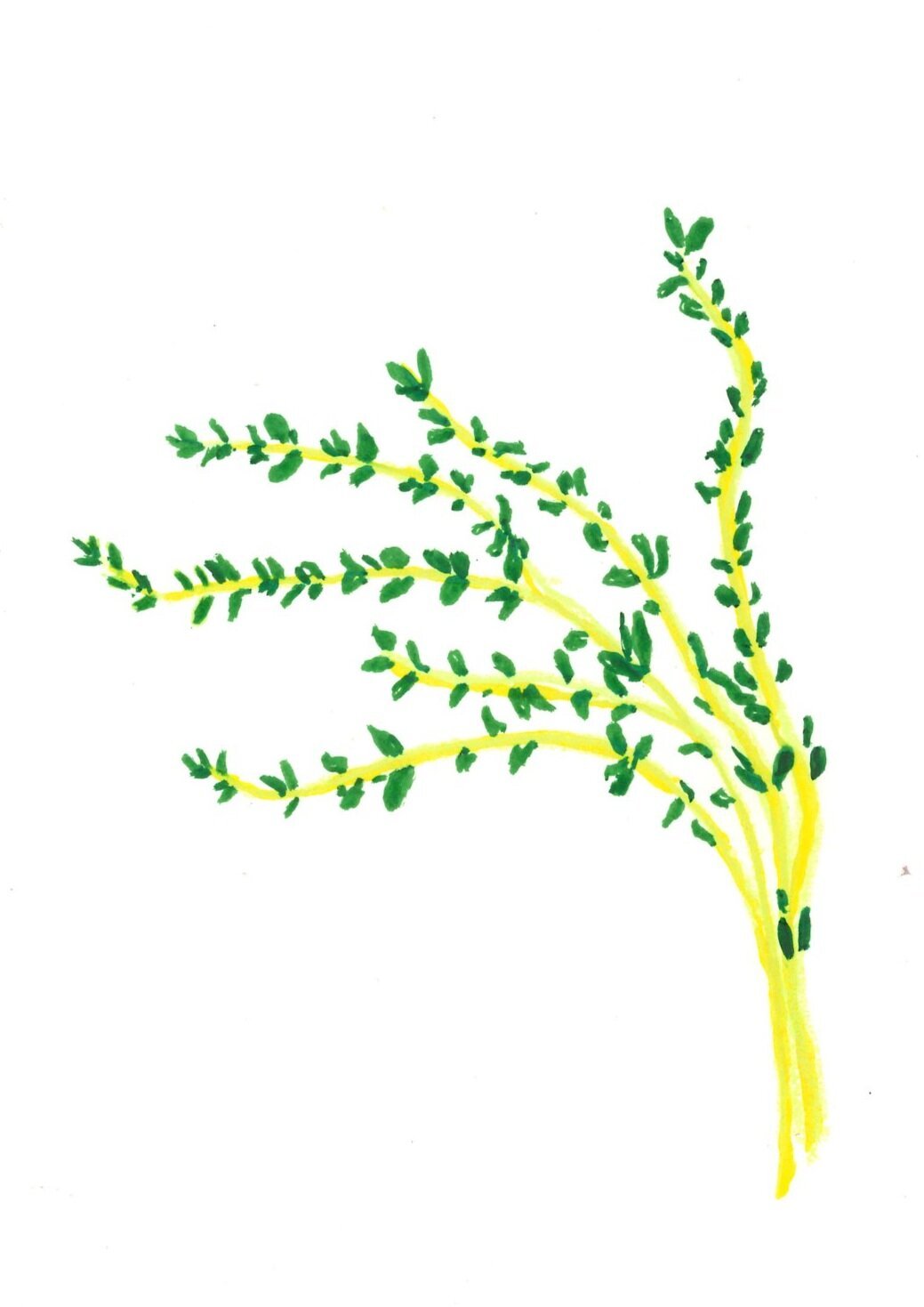
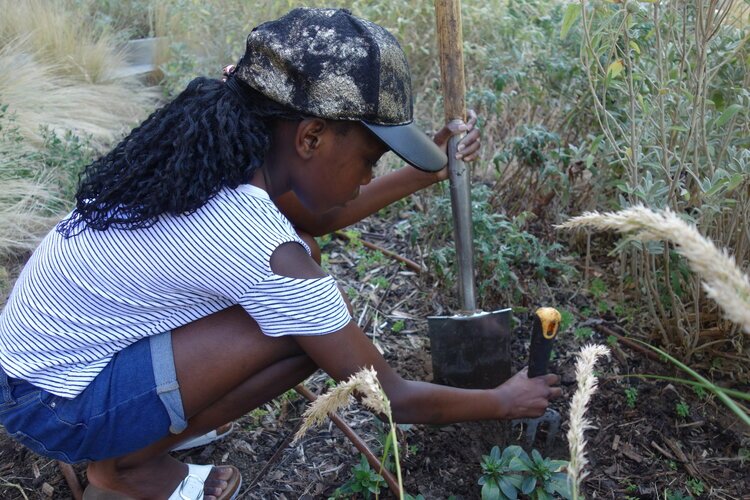



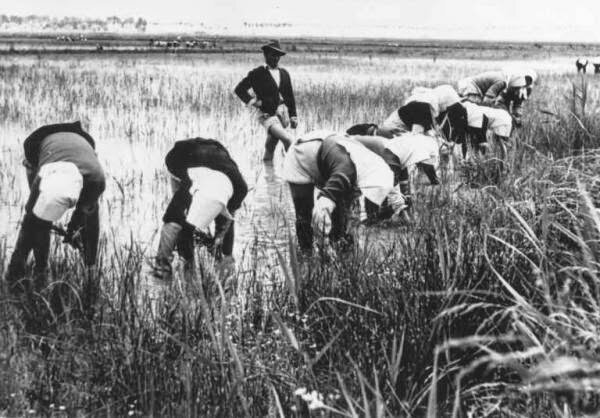
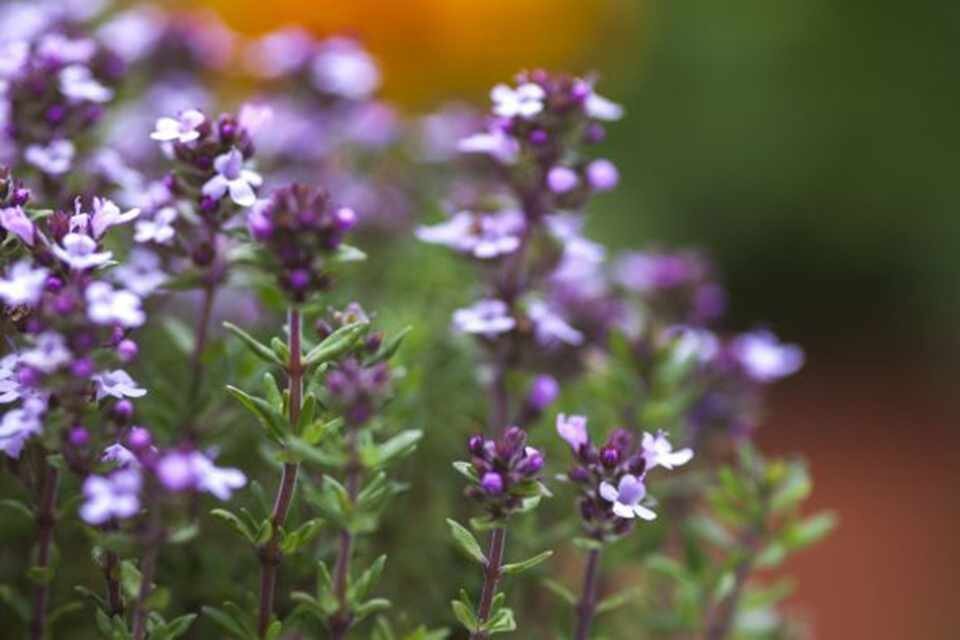
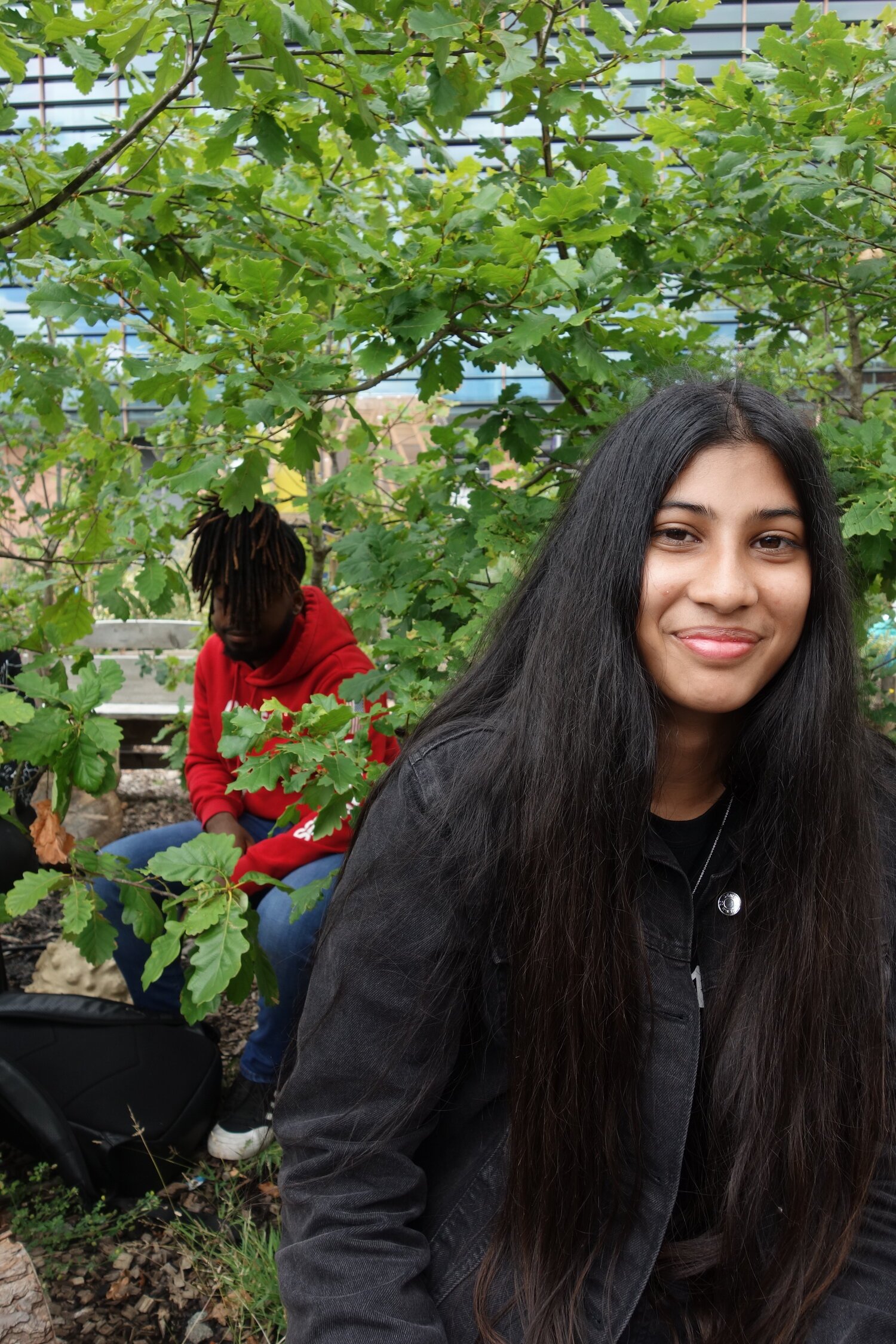
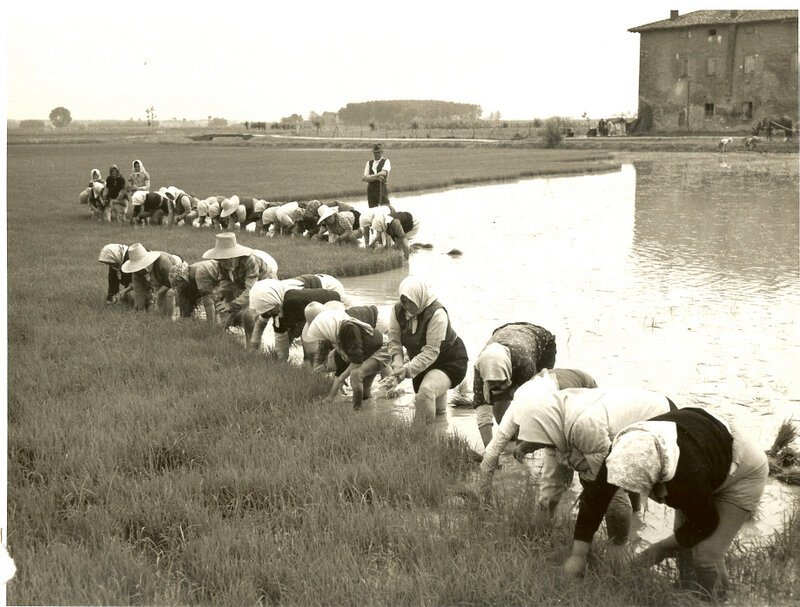





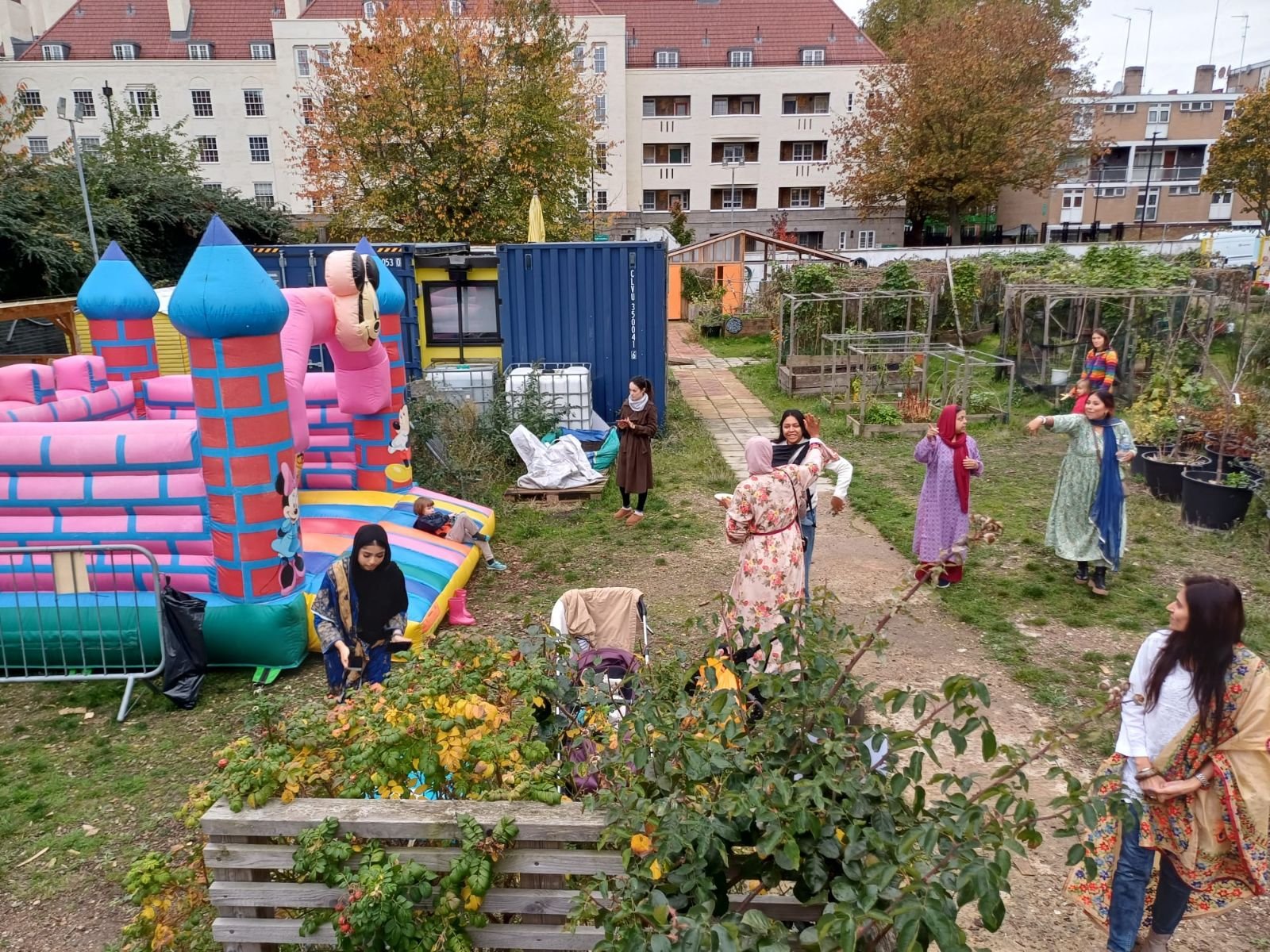

Meet our second cohort of earth build trainees! Their focus has been on all things wood, including green woodworking and the timber construction of the kitchen. They have learned on the job, while working on our sustainable natural build construction project to create our first permanent community garden, at the #TriangleSite.